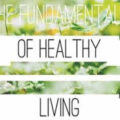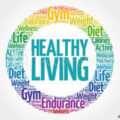Greenock is a town & administrative centre, part of the Inverclyde council area in the West of Scotland, just west of Glasgow & a former burgh within the county of Renfrewshire. Situated in the Lowlands of Scotland, it is part of an urban area with Gourock to the west and Port Glasgow lying further east.
The UK Census of 2011 showed that Greenock’s population was 44,248, which was a decrease from the 46,861 returned in the 2001 UK Census. It lies on the southern bank of the River Clyde at the “Tail of the Bank” just where the River Clyde opens into the Firth of Clyde.
News reports & useful info on Greenock.
Part 2 of the response by Margaret Johnstone to Gerry Hassan’s article in The National, on those who voted No in 2014.
Change is a constant
Why do we want to change our system of government? Why aren’t we content with the Westminster system that we have?
A fear of change is natural. We stick with the known afraid the unknown might be worse, rarely believing it could be so much better. But life and living are about change and we have to learn to embrace changes and make them work for us.
Maybe we need to look back a few decades to pre-EU, pre-devolution days to understand what changes have taken place in Scotland in the last fifty years. How Scotland has changed, and recently for the better, though it could be much better still. Look around at the standards of living and achievements in other small to medium sized European countries.


This need to look back and make comparisons was brought home to me recently when seeing on Twitter photographs from a book by Raymond Depardon, a French photographer, photojournalist and documentary filmmaker. In 1980 he was commissioned to photograph Glasgow for the Sunday Times Magazine but his photographs were considered too bleak to publish at the time. He now has a book of photographs, Glasgow. His images clearly illustrate how much Scotland has changed in the last forty to fifty years, though change has been slow. Photos from the book can be seen here.
The book has an introduction by the renowned author William Boyd, who attended Glasgow University from 1971-75, and who returns regularly to the city as his wife has relatives there. Boyd writes of how the city has changed: “the city’s striking evolution from 19th century relic to the modern, vibrant conurbation it is today.” He writes of how aware he was when at university of the hardness of lives in many parts of the city, the derelict housing, the poor goods in the shops, and the “deprivation and desperation etched in the faces of the young and the old” This state of affairs didn’t apply just to Glasgow but to many of Scotland’s cities (and it’s rural areas where poverty and deprivation tended to be more masked).
This was at a time when oil was flowing from fields off the coast of Scotland and the SNP had fought the February and October 1974 general elections on the slogan “It’s Scotland’s Oil”, arguing that the revenue the oil created would never benefit Scotland to any significant degree as long as Scotland remained part of the UK. The McCrone report, written in 1974 but kept under Top Secret wraps until 2005 when new freedom of information legislation came into effect, gave a very positive projection for the economy of an independent Scotland. It laid out clearly what an oil bonanza could mean to an independent Scotland and how it could best be used, in particular for “developing Scotland’s domestic economy and providing a modern infrastructure”. It concluded:
If, in five years’ time North Sea oil is contributing massively to the UK budget, while the economic and social condition of West Central Scotland continues in the poor state that it is today, it would be hard to imagine conditions more favorable to the growth of support for the nationalist movement. Very determined steps to urgently transform economic conditions in Scotland will therefore be necessary and the Scottish people will have to be persuaded that their problems really have received the attention and expenditure they deserve if this outcome is to be avoided.
Instead Scotland got a Thatcher government it didn’t vote for and the poverty and misery that brought.

Boyd then writes of the city’s transformation. “The abandoned wharves, shipyards and warehouses of the riverside – Glasgow’s imperial industrial heartland and the source of its wealth — are now landscaped parks of condominiums and gated communities and vast silvered monoliths of modernist architecture: new bridges, exhibition and conference centres, arenas.”
In the 1970s and 1980s, although part of the British sick man of Europe, most Scots still believed in the world-renowned parliament at Westminster – the Mother of Parliaments (what a laugh that now is). Scotland was a country that believed itself second class because we were told so often enough.
The heavy industries that had given us a peg in the world were in rapid decline, with nothing lined up to replace them. Harold Wilson’s ‘white heat of technology’ was never allowed to make much impression on Scotland. the policy more a revamp of older industries eventually leaving little residual change, unlike the dynamic post industrial changes that have taken place in Scotland in the 21st century. Most people settled for a dumbing down of ambition (though many made it to university, the first in their families to do so). Others believed that many positions weren’t for the likes of us, we couldn’t do that, weren’t up to that. The infamous yet very real Scottish cringe. Yet the sixties and seventies did bring a blast of fresh air, unfortunately of the kind that made most with ambition or vision for the future take the road to London, emigrate on assisted passages to Canada, Australia, New Zealand, while others quietly escaped to pastures new somewhere, anywhere, as long as the glaur of Scotland was left behind.
That shaped much of the following decades (how threadbare and desperate those decades under Westminster were), further enforced by the 1979 referendum – won but not by sufficient margin for a unionist Westminster – until 1999 brought a change. Devolution (it was supposed to kill nationalism stone dead) and the establishment of the Scottish Parliament saw a burgeoning of confidence, a belief that life in Scotland could be better, and that we ourselves could be an integral part of that change.
Since joining the EU and the setting up of a devolved Scottish Parliament at Holyrood, Scotland has inch by inch become a very different country.
Gone are most of our heavy industries to be replaced by those in demand in the 21st century – such as communication satellites, video games, life sciences, renewable energy. Our environments, both urban and rural have improved e.g. better housing and living conditions, food standards, and cleaner drinking and bathing waters. Lack of ambition and of opportunities, the spiralling unemployment and devastating austerity of the Thatcher years slowly changed with EU freedom of movement and the ability to widen horizons and experience by working and living in other countries.
The road to London became only one of the options available and maybe not necessarily the most attractive. The Scottish Government worked to encourage new industries, inward investment, a focus on the growth areas of the future, areas where Scotland had the skills and educational back-up to become trail-blazers. Areas where pay and prospects were good with a longterm future.

Membership of the EU and the advent of cheap flights and package holidays opened up Europe to us, changing our lives, broadening our outlooks and reconnecting us with countries with which we had enjoyed historical links. We embraced Mediterranean food (having already developed a passion for Asian), and outdoor living. These provided new areas for trade, provided openings for retail outlets both large and small e.g. high quality delicatessens, clothes suited to lounging on warm beaches. Our diet has changed significantly, becoming more Mediterranean with peppers, aubergines, mangoes, salamis and pastas regularly picked up on shopping trips.
The renewed interest in food brought with it significant growth in food quality and exports, as well as an emergence of chefs using high quality Scottish produce, turning a country where food was once the butt of visitor jokes to one where its produce is highly renowned abroad, and appreciated by visitors here. The oncoming Brexit will affect what we can afford to eat, the variety of what we put on the table, and Scotland’s standing as an exporter of high quality food. A look at the labels in your food cupboard will show how much imported food we normally now eat.

Relationships with others changed too. People from different EU countries married, had children (often born in different EU countries as we were all members of the big EU family). We have learned from other cultures and other cultures have appreciated ours. Brexit has ripped that apart, destroying families and the embracing of diversity that enriched our lives. Do we accept this diminution? Remaining in the UK means we do.
Is Scotland really unique, unable to run its own affairs?
Photographic images are by the author of this article
This article “Is Scotland really unique? – Part 2” was initially shown on this site.
We hope you found the above of help and/or of interest. You can find similar content on our blog .
Let me have your feedback below in the comments section.
Let us know which subjects we should write about for you in the future.
Thai Massage Newsletter
To make sure you don’t miss out on any new posts or promotions that we introduce, sign up for our newsletter.
Once a month we run a special promotion for our newsletter members, so sign up now to make sure you don’t miss out.
It’s free and full of great health and nutrition tips and advice on how we can help you achieve your health and fitness goals.






